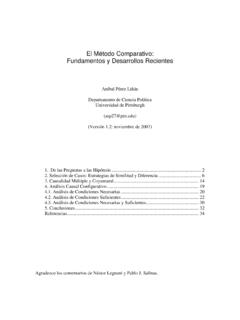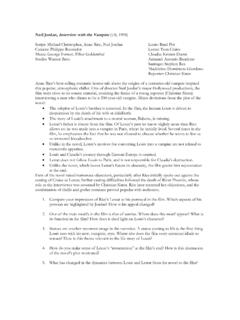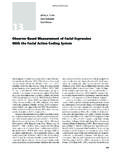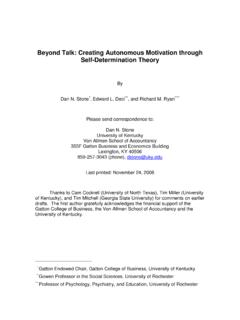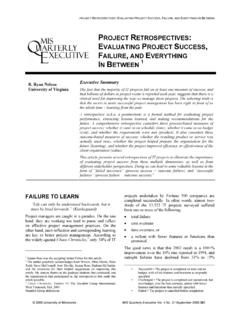Transcription of KRITWN - University of Pittsburgh
1 CRITO KRITWN PLATO PLATWN CRITO KRITWN PLATO PLATWN Translated by Cathal Woods and Ryan Pack 2007-2012 This work is licensed under the Creative Commons Attribution-Noncommercial-No Derivative Works License. To view a copy of this license, visit or send a letter to Creative Commons, 171 Second Street, Suite 300, San Francisco, California, 94105, 1 43a b c d 44a b Socrates (So): Why have you come at this hour, Crito? Or isn't it still early? Crito (Cr): It certainly is. So: About what time is it? Cr: Just before dawn. So: I'm surprised that the prison guard was willing to admit you. Cr: He is used to me by now, Socrates, since I visit here so often.
2 And besides, I have done him a good turn. So: Did you get here just now or a while ago? Cr: Quite a while ago. So: So how come you didn't you wake me up immediately, but sat by in silence? Cr: By Zeus, no, Socrates. I wish I myself were not so sleepless and sorrowful, and so I have been marveling at you, when I see how peacefully you've been sleeping. I deliberately didn't wake you so that you would pass the time as peacefully as possible. Even before now I have often thought you fortunate on account of your demeanor towards your entire life, and even more so in your present misfortune, how easily and calmly you bear it. So: It's because it would be out of tune, Crito, to be angry at my age if I must finally die.
3 Cr: And yet others of your age, Socrates, have been caught up in such misfortunes, but their age does not prevent any of them from being angry at his fate. So: That's true. But why did you come so early? Cr: Carrying troubling news, Socrates, though not for you, as it appears, but deeply troubling for me and all of your friends, and I, it seems, am among the most heavily burdened. So: What is it? Has the ship arrived from Delos,* upon whose arrival I must die? Cr: No, it hasn't arrived, but it looks like it will arrive today, based on what some people who have come from Sounion* report, who left it there. It's clear from this that it will arrive today, and you will have to end your life tomorrow, Socrates.
4 So: May it be for the best, Crito. If this pleases the gods, so be it. However, I don't think it will come today. Cr: Where do you get your evidence for this? So: I will tell you. I must be put to death sometime the day after the ship arrives? Cr: That's what the authorities in these matters say, at least. So: In that case, I don't think it will arrive this coming day, but the next. My evidence is something I saw in a dream a little while ago during the night. It's likely that you chose a very good time not to wake me. Cr: Well, what was the dream? So: A woman appeared, coming towards me, fine and good-looking, wearing white clothing. She called to me and said, "Socrates, you shall arrive in fertile Phthia on the third day.
5 "* Cr: What a strange dream, Socrates. So: But obvious, at least as it appears to me, Crito. Crito 2 c d e 45a b c Cr: Too obvious, perhaps. But, my supernatural Socrates, even now listen to me and be saved. I think that if you die it won't just be one misfortune. Apart from being separated from the kind of friend the like of which I will never find again, many people, moreover, who do not know me and you well will think that I could have saved you if I were willing to spend the money, but that I didn't care to. And wouldn't this indeed be the most shameful reputation, that I would seem to value money above friends?
6 For the many will not believe that it was you yourself who refused to leave here, even though we were urging you to. So: But why should we, blessed Crito, care so much about the opinion of the many? The best people, who are more deserving of our attention, will believe that the matter was handled in just the way it was. Cr: But surely you see, Socrates, that we must pay attention to the opinion of the many, too. The present circumstances make it clear that the many can inflict not just the least of evils but practically the greatest, when one has been slandered amongst them. So: If they were of any use, Crito, the many would be able to do the greatest evils, and so they would also be able to do the greatest goods, and that would be fine.
7 But as it is they can do neither, since they cannot make a man either wise or foolish, but they do just whatever occurs to them. Cr: Well, let's leave that there. But tell me this, Socrates. You're not worried, are you, about me and your other friends, how, if you were to leave here, the informers would make trouble for us, about how we stole you away from here, and we would be compelled either to give up all our property or a good deal of money, or suffer some other punishment at their hands? If you have any such fear, let it go, because it is our obligation to run this risk in saving you and even greater ones if necessary. So trust me and do not refuse. So: I certainly am worried about these things, Crito, and lots of others too.
8 Cr: Well don't fear them. Indeed, some people only need to be given a little silver and they're willing to rescue you and get you out of here. And on top of that, don't you see how cheap those informers are and that we wouldn't need to spend a lot of money on them? My money is at your disposal, and is, I think, sufficient. Furthermore, even if, because of some concern for me, you think you shouldn't spend my money, there are these visitors here who are prepared to spend theirs. One of them has brought enough silver for this very purpose, Simmias of Thebes, and Kebes too is willing, and very many others. So, as I say, don't give up on saving yourself because you are uneasy about these things.
9 And don't let what you said in the court get to you, that you wouldn't know what to do with yourself as an exile. In many places, wherever you go, they would welcome you. And if you want to go to Thessaly, I have some friends there who will think highly of you and provide you with safety, so that no one in Thessaly will harass you. What's more, Socrates, what you are doing doesn't seem right to me, giving yourself up when you could have been saved, ready to have happen to you what your enemies would urge and did urge in their wish to destroy you. Crito 3 d e 46a b c d e In addition, I think you are betraying your sons, whom you could raise and educate, by going away and abandoning them, and, as far as you are concerned, they can experience whatever happens to come their way, when it's likely that as orphans they'll get the usual treatment of orphans.
10 One should either not have children or endure the hardship of raising and educating them, but it looks to me as though you are taking the laziest path, whereas you must choose the path a good and brave man would choose, especially when you keep saying that you care about virtue your whole life long. So I am ashamed both on your behalf and on behalf of us your friends, that this whole affair surrounding you will be thought to have happened due to some cowardice on our part: the hearing of the charge in court, that it came to trial when it need not have, and the legal contest itself, how it was carried on, and, as the absurd part of the affair, that by some badness and cowardice on our part we will be thought to have let this final act get away from us, we who did not save you, nor you save yourself, when it was possible and we could have done so if we were of the slightest use.


